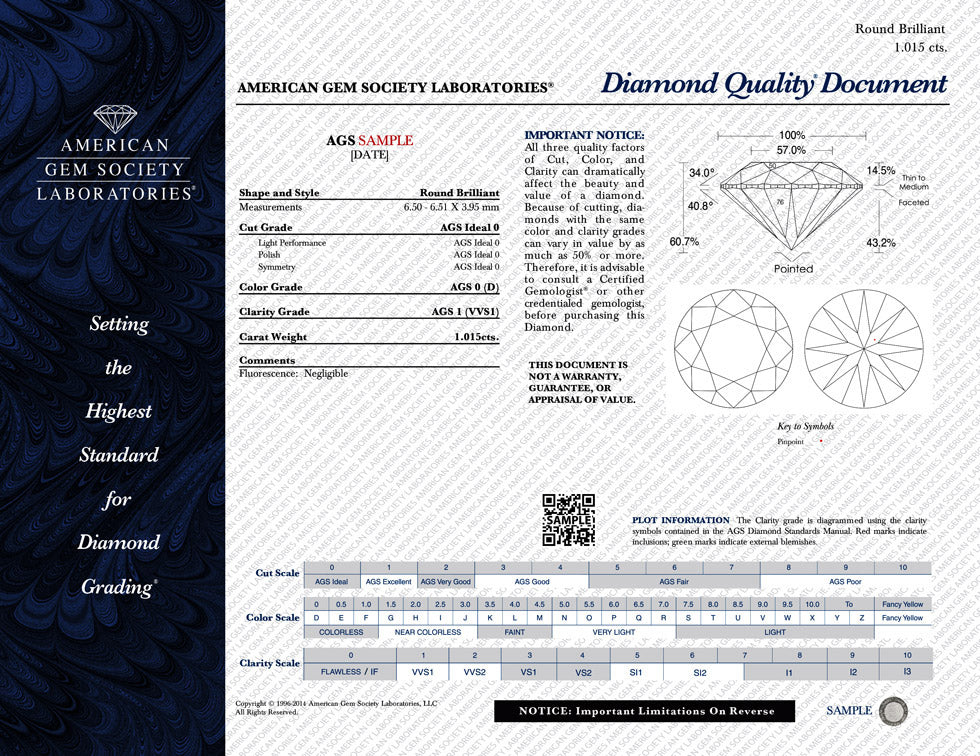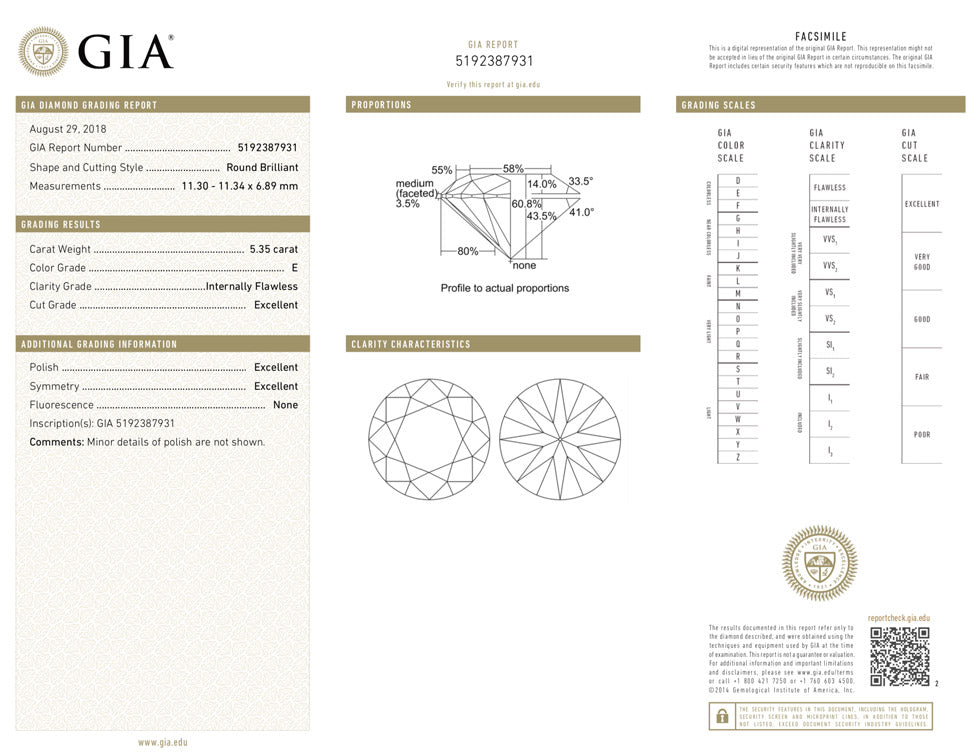Diamond Certification

Natural Ritani diamonds are graded by the industry's most stringent diamond grading labs: AGSL and GIA. Each earth-grown diamond available from Ritani comes with either a diamond grading report, Diamond Dossier®, or a diamond quality document.
The certified diamond experts at these diamond grading labs observe the diamond with their own expert eyes, as well as with a number of scientific tools to document the dimensions, color, clarity and carat weight of the diamond.
Diamond Grading Reports
Ritani only works with the most respected diamond grading labs. Because these labs have the highest standards for diamond grading, you'll find diamonds certified by these labs tend to carry a premium. Our diamonds have received the highest grades of quality, so they are guaranteed to be the highest quality diamonds available.
The GIA, founded in 1931, established the standards for grading diamonds and provides gemologist training and supplies diamond knowledge to the industry today. The founder of the GIA went on to form the AGSL in 1934, to create a society of jewelers focused on consumer education and promoting ethical business practices within the diamond industry.
In 1996 the AGS opened a diamond grading lab — the AGSL — a non-profit agency with the mission of providing stringent, standardized grading reports. Their mission is to establish a trusted set of criteria to evaluate diamond cut. This in turn, promotes the production of more diamonds cut for maximum sparkle, rather than cut to maximize carat weight.
The AGSL Diamond Quality Document
Highly regarded among all jewelers, the Diamond Quality Document provides a verification of the qualities of a diamond, performed by an experienced AGSL geologist.

Shape and StyleDefinition of the diamond shape, and the measurements of the diamond dimensions. Cut, Color, and ClarityThese characteristics are graded on a scale from 0-4, with 0 as the highest grade. The "AGSL 000" or "AGSL triple-zero" is renowned as a diamond with exceptional cut, color, and clarity, and one of the finest diamonds available. Carat WeightThe weight of the diamond measured to a thousandth of a carat.
| Diamond Clarity PlotThis diagram shows the diamond's inclusions. They have been marked by the AGSL gemologist as they appear from the top and from the bottom. Because the gemologists use pens to mark where inclusions appear, the actual inclusions may be smaller than the marks. Diamond Grading ChartThis summary of the Cut, Color and Clarity grading scale helps you remember which grades are optimal.
|
GIA's Diamond Grading Report
Jewelers across the globe recognize and respect the Diamond Grading Report, a document created by the experienced gemologists at the GIA.

Shape and Cutting StyleDefinition of the diamond shape. MeasurementsThe measurement of the diamond dimensions. Grading Results — GIA 4CsHere you'll find the Carat Weight (measured to the closest thousandth of a carat), as well as the Color, Clarity, and Cut grades of the diamond. Additional Grading InformationGrades for the Finish, comprised of the Polish, Symmetry, and Fluorescence, are graded based on a scale of Poor, Good, Very Good, Excellent.
| Grading ChartsThis summary of the Color, Clarity, and Cut grading scale helps you remember which grades are optimal. Reference DiagramsThis diamond diagram shows the diamond's inclusions. They have been marked by the GIA gemologist as they appear from the top (looking through the table) and from the bottom (looking through the pavilion). Note that because the gemologists use pens to mark where the inclusions appear, the actual inclusions may be smaller than the marks. |


